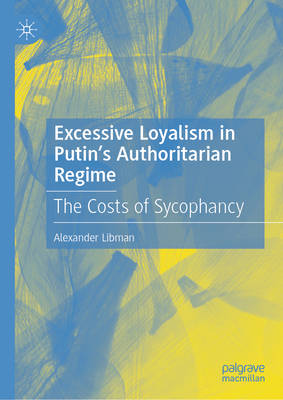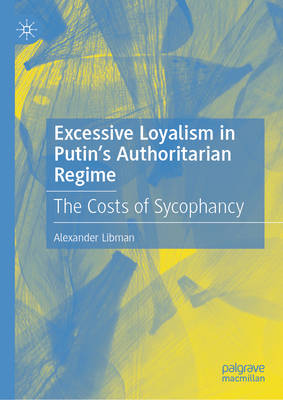
- Afhalen na 1 uur in een winkel met voorraad
- Gratis thuislevering in België vanaf € 30
- Ruim aanbod met 7 miljoen producten
- Afhalen na 1 uur in een winkel met voorraad
- Gratis thuislevering in België vanaf € 30
- Ruim aanbod met 7 miljoen producten
Zoeken
Excessive Loyalism in Putin's Authoritarian Regime
The Costs of Sycophancy
Alexander Libman
Hardcover | Engels
€ 126,95
+ 253 punten
Omschrijving
This book provides new insights into how excessive loyalism hinders Russia's authoritarian government. When Russian bureaucrats, diplomats and academics go to great lengths to display their loyalty to the regime in Moscow, many observers regard it as a show of regime's strength. Yet where this results in overcompliance, excessive praise or needlessly aggressive rhetoric, it becomes a source of weakness - not only alienating citizens at home and irritating allies abroad but even contributing to costly strategic mistakes, such as Russia's full-scale invasion of Ukraine. The book engages with an intractable dilemma facing the regime: it cannot punish these actors for being too loyal, but it also cannot allow such expressions of loyalty to break the boundaries it sets. The author helps explain why the regime has repeatedly stunned the international community with unexpected political moves and, in several cases, become its own worst enemy. In doing so, he illuminates many of the dynamics through which sycophancy undermines authoritarian governments across the world. The book addresses a broad array of manifestations of excessive loyalism and sycophancy in Russia - from rude and offensive comments of bureaucrats to rhetorical dissonance in the foreign policy to politically motivated rhetoric in the Russian academia. It combines quantitative and qualitative tools to study sycophancy empirically and develops a theory of excessive loyalism, which is applicable well beyond the Russian case. Alexander Libman is Professor of Russian and East European Politics at the Freie Universität Berlin, Germany. His main research interests include comparative politics of authoritarian regimes, Russian politics, historical legacies of authoritarianism and authoritarian cooperation in the post-Soviet Eurasia. His work has been published, among others, in the American Political Science Review, Comparative Political Studies, World Politics, Perspectives on Politics and British Journal of Political Science.
Specificaties
Betrokkenen
- Auteur(s):
- Uitgeverij:
Inhoud
- Aantal bladzijden:
- 247
- Taal:
- Engels
Eigenschappen
- Productcode (EAN):
- 9783032012678
- Verschijningsdatum:
- 27/09/2025
- Uitvoering:
- Hardcover
- Formaat:
- Genaaid
- Afmetingen:
- 142 mm x 201 mm
- Gewicht:
- 453 g

Alleen bij Standaard Boekhandel
+ 253 punten op je klantenkaart van Standaard Boekhandel
Beoordelingen
We publiceren alleen reviews die voldoen aan de voorwaarden voor reviews. Bekijk onze voorwaarden voor reviews.







